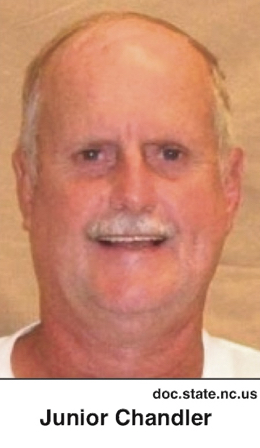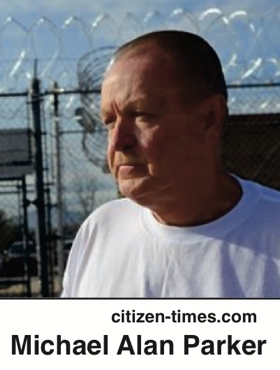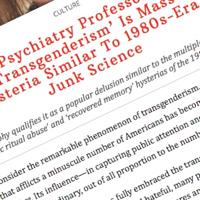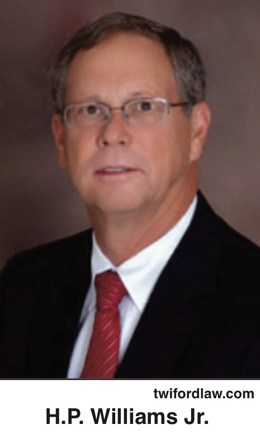Rascals case in brief
In the beginning, in 1989, more than 90 children at the Little Rascals Day Care Center in Edenton, North Carolina, accused a total of 20 adults with 429 instances of sexual abuse over a three-year period. It may have all begun with one parent’s complaint about punishment given her child.
Among the alleged perpetrators: the sheriff and mayor. But prosecutors would charge only Robin Byrum, Darlene Harris, Elizabeth “Betsy” Kelly, Robert “Bob” Kelly, Willard Scott Privott, Shelley Stone and Dawn Wilson – the Edenton 7.
Along with sodomy and beatings, allegations included a baby killed with a handgun, a child being hung upside down from a tree and being set on fire and countless other fantastic incidents involving spaceships, hot air balloons, pirate ships and trained sharks.
By the time prosecutors dropped the last charges in 1997, Little Rascals had become North Carolina’s longest and most costly criminal trial. Prosecutors kept defendants jailed in hopes at least one would turn against their supposed co-conspirators. Remarkably, none did. Another shameful record: Five defendants had to wait longer to face their accusers in court than anyone else in North Carolina history.
Between 1991 and 1997, Ofra Bikel produced three extraordinary episodes on the Little Rascals case for the PBS series “Frontline.” Although “Innocence Lost” did not deter prosecutors, it exposed their tactics and fostered nationwide skepticism and dismay.
With each passing year, the absurdity of the Little Rascals charges has become more obvious. But no admission of error has ever come from prosecutors, police, interviewers or parents. This site is devoted to the issues raised by this case.
On Facebook
Click for earlier Facebook posts archived on this site
Click to go to
Today’s random selection from the Little Rascals Day Care archives….
Click for earlier Facebook posts archived on this site
Click to go to
Today’s random selection from the Little Rascals Day Care archives….
Chandler’s sentence designed to lock him up forever
 Nov. 8, 2015
Nov. 8, 2015
“The latest obstacle to Gerald Amirault’s freedom came without fanfare. A three-member panel of the Massachusetts Department of Corrections has now decided that, since the prisoner has refused participation in treatment programs for sex offenders, he was considered to be ‘in denial.’ Permission for him to appear before the Board that could grant early parole would therefore be denied.”
– From “How to Extort a Confession” in the Wall Street Journal (April 22, 2002)
Steadfast in his supposed “denial,” Amirault wouldn’t be paroled until 2004 – 18 years into his 40-year sentence.
Compared with Junior Chandler, however, he was lucky. Chandler’s two consecutive life sentences have made him ineligible for parole. For a brief moment during his long and maddening appeals process, in 2008, it seemed those life sentences would be made concurrent – thus qualifying him for parole consideration. But a switch in judges, orchestrated by the attorney general’s office, vaporized that prospect.
A footnote: The North Carolina Department of Correction has its own Sexual Offender Accountability and Responsibility program. “Through psycho-educational modules, behavior techniques and empathy training,” its website says, “S.O.A.R. participants learn that sexually abusive behavior is both controllable and manageable.”
Junior Chandler recalls having been invited to participate, but …. “They said I had to admit I was guilty. I told them I couldn’t do that, because I hadn’t done anything…. What would you do?”
N.C. judge throws out ‘ritual abuse’ conviction
 Aug. 28, 2014
Aug. 28, 2014
“ASHEVILLE, N.C. – After more than 20 years behind bars, Michael Alan Parker, 57, walked past the barbed wire gates of Craggy Correctional Center and looked out at the mountain skyline on Tuesday morning.
“Convicted of sexually abusing his three children in a 1994 trial charged with allegations of Satanism, Parker was freed after Superior Court Judge Marvin Pope ruled Monday that the medical evidence would no longer be interpreted as proof of sexual abuse. Pope vacated Parker’s sentence and dismissed the charges against him….
“Parker was first jailed in February 1993, when he and several codefendants were accused of abusing Parker’s three children in and near their home in Saluda, N.C.
“At trial in 1994, Parker’s children testified in graphic detail about abuse that prosecutors labeled ritualistic. The 9-year-old girl testified that she had been sexually abused in a garage behind their home. She said a fire was burning inside a circle made of rocks, and she heard people chanting in soft voices.
“In an emotion-charged atmosphere, then-Assistant District Attorney Mike Edwards called the trailer park where the family lived ‘Sodom and Saluda’ and quoted the Bible in his statements to the jury….”
– From “Henderson County man walks free after 20 years in prison“ by Renee Bindewald in the Spartanburg (S.C.) Herald-Journal
Congratulations are in order for Mr. Parker and his appellate lawyer, Sean Devereux, who had labored doggedly (and often pro bono) on his behalf since 1999.
The similarities to Andrew Junior Chandler’s case are obvious, although the “Sodom and Saluda” allegations in the Parker case were rooted in domestic turmoil rather than in the way-too-familiar day-care fantasy. Most notable is Judge Pope’s recognition that the type of medical validation of abuse presented at trial has been persuasively discredited – see also, the physician’s recantation that set Fran and Dan Keller free.
Will Pope’s decision prove to be an aberration? Or does it presage the breakthrough Junior Chandler has for so long been denied?
Transgender movement compared to hysterias of 1980s and ’90s
 Nov. 21, 2016
Nov. 21, 2016
“Transgenderism would refute the natural laws of biology and transmute human nature. The movement’s philosophical foundation qualifies it as a popular delusion similar to the multiple-personality craze, and the widespread ‘satanic ritual abuse’ and ‘recovered memory’ hysterias of the 1980s and ’90s. These last two involved bizarre accusations of child abuse and resulted in the prosecution and ruined lives of the falsely accused.
“Such popular delusions are characterized by a false belief unsupported by any scientific or empirical evidence and have a contagious quality that overrides rational thinking and even common sense. …”
– From “Psychiatry Professor: ‘Transgenderism’ Is Mass Hysteria Similar To 1980s-Era Junk Science” by Richard B. Corradi at the Federalist (Nov. 17)
Dr. Corradi is professor emeritus of psychiatry at Case Western Reserve School of Medicine, where his opinion of transgenderism is “in no manner shared by this department or by Case Western Reserve or… the American Psychiatric Association or mainstream psychiatry.” A more widely accepted view: “You would think that a professor of psychiatry would know better” by David Cary Hart at the Slowly Boiled Frog (Nov. 18)
But what you won’t see debated among 21st Century psychiatrists and social scientists is Corradi’s characterization of “satanic ritual abuse” as “a popular delusion.” Perhaps one day the American Professional Society on the Abuse of Children will decide to join them.
![]()
It’s not just politics that make strange bedfellows
 June 23, 2014
June 23, 2014
“The emphasis has got to be on the crime. Once you start using labels like satanic, sadistic or ritualistic, then you’re immediately raising a red flag…. Law enforcement, prosecutors, judges, mental health professionals and especially the general public begin to back off, because it’s so hard to believe these things happen…. We emphasized rape, sex offense, indecent liberties, crimes against nature…Those were the crimes that Bob Kelly was convicted of, those are what the jury heard evidence of….
“We let the defense attorneys bring out the sadistic and ritualistic….”
– From District Attorney H. P. Williams Jr.’s address to “From Heartbreak Through Healing: Facing the Reality of Sexual and Ritual Abuse of Children,” the first national convention of Believe the Children (April 2-4, 1993, in Arlington Heights, Ill.)
I transcribed Williams’ cautionary prosecutorial advice from audiotapes, so I can only imagine the scene on the speakers’ dais he shared with not only one of the Little Rascals mothers, but also Laura Buchanan, author of “Satan’s Child: A Survivor’s Story That Can Help Others Heal from Cultic Ritual Abuse.”
What must have Williams been thinking as Buchanan earnestly recalled that:
“We stood poised with knives in an incomprehensible world where children killed children…. Permitted to live until age four (my sister) was sacrificed by my parents…. My final programming, as a teenager, occurred on an autopsy table in the coroner’s office. A surgical procedure was staged and through a small incision in my scalp I was told that a surveillance device would be inserted into my brain. The supposed implant would be used at national headquarters to continuously monitor my thoughts. For decades the programming was extremely effective. Until the age of 44, I had no idea that my parents practiced satanism….”
With Bob Kelly and Dawn Wilson locked away, and the overturning of their convictions still two years away, DA Williams was riding high. But surely he must have experienced the slightest frisson of doubt when he saw Buchanan’s patent insanity being swallowed whole by the same audience that so enthusiastically applauded his case against the Edenton Seven.











0 CommentsComment on Facebook